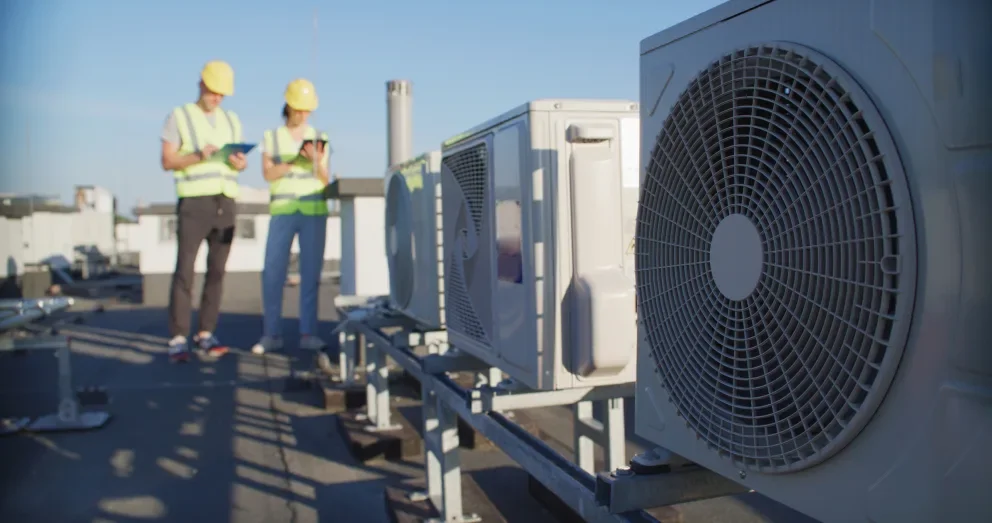HVAC, which stands for Heating, Ventilation, and Air Conditioning, encompasses a wide range of services and products that aim to ensure thermal comfort and air quality in indoor spaces. HVAC systems are pivotal in residential, commercial, and industrial buildings, managing temperature, removing contaminants, and regulating humidity levels. Business opportunities in the HVAC industry are abundant due to consistent demand for new installations, upgrades of inefficient systems, and ongoing maintenance services. As technology advances, these opportunities expand further to include energy-efficient solutions and smart climate control systems, highlighting the sector’s dynamic and innovative nature.HVAC Business Opportunities
Entrepreneurs considering entering the HVAC market can explore various avenues such as starting a repair and maintenance service, becoming a specialized HVAC equipment distributor, or creating a business focused on sustainable and green HVAC technologies. The industry is not only lucrative but also essential for modern living, making it a promising field for investment and growth.
Exploring the HVAC industry reveals a robust and evolving market place ripe with potential for entrepreneurs and investors alike. With the constant progression toward energy-efficient living and the necessity of climate control in buildings, the expansion of HVAC business opportunities continues to escalate. This perpetual growth makes it a fascinating field for new ventures.
The entry to the HVAC field offers a unique blend of technical skill, customer service, and business acumen. The successful entrepreneur must navigate the latest technological advancements, while also understanding the needs of a diverse client base. From residential comfort to industrial requirements, the scope of potential clients is vast and varied.
In this article, we delve into the realm of HVAC business opportunities, demystifying the complexities of the industry and uncovering the pathways to success. We will examine the trends driving growth, the challenges newcomers may face, and the strategies for building a profitable HVAC business. Whether a seasoned business owner or a newcomer, the information here lights the way for your entrepreneurial journey in the HVAC landscape.
Cool Profits: How to Capitalize on the Growing Demand for HVAC Services
In the burgeoning HVAC industry, recognizing emerging trends is crucial. The rising global temperatures drive demand for high-quality cooling services. As homes and businesses seek comfort, savvy entrepreneurs can capture a significant market share. By investing in advanced technology, service providers can offer energy-efficient solutions that attract environmentally conscious consumers. Understanding client needs and expectations is essential to delivering tailored services in this sphere.
Within this competitive landscape, differentiation through unique offerings is a key strategy. Service providers can introduce maintenance contracts, which ensure regular income and customer loyalty. Such packages often lead to enduring relationships with clients, securing a steady revenue stream. Likewise, offering emergency repair services 24/7 can set a company apart. Quick response times not only satisfy immediate client needs but also build a reputation for reliability.
Strategic marketing efforts are indispensable in drawing attention to HVAC services. Using social media platforms effectively can increase visibility and engage potential clients. Demonstrating expertise through educational content empowers consumers to make informed decisions. Equally important is attending trade shows, which provide opportunities for networking and showcasing new technologies, thus capturing the interest of potential partners and clients.
One must not overlook the significance of certifications and accreditations in this field. Obtaining industry-recognized credentials can bolster a company’s trustworthiness and expertise. As regulations and standards evolve, staying abreast of such changes and maintaining compliance is vital. It solidifies credibility and ensures that services meet the highest standards of quality and safety for customers.
Ultimately, successful HVAC businesses thrive on both innovation and customer satisfaction. Constantly evolving the service portfolio to include the latest technologies keeps a business ahead of the curve. By listening to feedback and adapting to customer preferences, HVAC services can exceed expectations. These customer-centric approaches, coupled with operational excellence, will yield ‘cool profits’ in an ever-warm world.
Heating Up the Market: Innovative HVAC Business Strategies for Modern Entrepreneurs
Modern HVAC entrepreneurs face a dynamic market teeming with potential and competition. Strategically navigating this industry involves embracing technological advancements. Digital tools can provide a competitive edge, from client management software to advanced diagnostic equipment. Emphasizing such innovations in marketing endeavors heightens appeal to tech-savvy customers who value cutting-edge solutions. Furthermore, these tools can streamline operations, resulting in cost savings and enhanced service delivery.
Customer service excellence is the cornerstone of a successful HVAC enterprise. Training staff to offer personalized service builds a loyal customer base. When employees demonstrate professionalism and skill, it resonates with clients, who often share their positive experiences. This word-of-mouth publicity can be incredibly powerful in generating new business. Rewarding repeat customers with discounts or special offers furthers strengthens these essential relationships.
Sustainability is becoming increasingly important in the HVAC sector. Offering eco-friendly solutions not only meets the growing demand for green technologies but also showcases corporate responsibility. Investing in research and development to create energy-efficient systems will secure a foothold in this evolving niche. Additionally, utilizing sustainable practices within the business itself can attract like-minded customers and partners eager to support environmentally conscious operations. HVAC Business Opportunities
Incorporating a strong online presence is essential in today’s digital age. An easy-to-navigate website that highlights services, customer testimonials, and contact information is a must. In addition, an active social media presence can create avenues for engagement and promotion. By sharing tips on energy conservation or the benefits of regular HVAC maintenance, businesses can establish themselves as thought leaders in the industry.
Entrepreneurs should not underestimate the power of collaboration. Building partnerships with construction firms, real estate developers, and home improvement businesses can unlock new opportunities. These alliances enable HVAC providers to tap into a wider customer base and diversify their service offerings. Collaboration ensures growth and sustainability in the competitive landscape of the HVAC market.
Air Quality Oracle: Tapping into the Health-Conscious HVAC Niche
The nexus between HVAC services and air quality has never been more significant. As health awareness rises, customers increasingly demand systems that promote clean indoor air. Recognizing this paradigm shift allows HVAC companies to position themselves as experts in this niche. Educating the public on the health benefits of quality HVAC systems can help win over health-conscious consumers. It becomes crucial to focus on disease prevention and overall well-being.
One strategy is to offer air quality assessments as part of maintenance services. This added value can differentiate a business from its competitors. By providing detailed analysis and recommendations, the service evolves from a simple tune-up to a wellness check for the home or office. Enhancing the client’s living or working environment in this way fosters trust and establishes the provider as an air quality oracle.
Innovation plays a critical role in cementing a company’s reputation in the health-conscious HVAC segment. Investing in the latest air purification technologies, such as HEPA filters and UV lamps, can appeal to those concerned about respiratory issues. Providing such solutions shows responsiveness to customer concerns and a commitment to delivering advanced, health-focused services. HVAC Business Opportunities
Collaborating with healthcare professionals can also enhance credibility. Partnering with allergists or pulmonologists to host seminars on the importance of air quality can educate potential customers while providing networking opportunities. Such partnerships also present an avenue for cross-promotion, reinforcing the image of the HVAC provider as a champion of healthy living.
To succeed in this particular niche, ongoing education and certification in air quality standards are essential. HVAC professionals should be well-versed in the latest air quality research and technologies. Continuing education ensures that the business remains at the forefront of this important aspect of the HVAC industry, ready to deliver solutions that not only control temperature but also protect health.
Smart Temperature Technology: How IoT is Revolutionizing the HVAC Industry
The integration of the Internet of Things (IoT) within the HVAC industry heralds a new era of convenience and efficiency. With smart temperature technology, remote monitoring and control are at the fingertips of users, offering unparalleled comfort and flexibility. Advances in IoT enable HVAC systems to learn user preferences and adapt seamlessly, resulting in optimal climate control and a reduction in energy waste. Harnessing these innovations places pioneers at the forefront of the industry’s revolution.
Leveraging IoT connectivity, HVAC businesses can offer proactive maintenance services. By receiving real-time data on system performance, issues can be identified and addressed before escalations occur. This not only prolongs equipment life but also ensures consistent optimal performance for the end-user. Clients appreciate the reassurance that comes with such attentiveness, fostering long-term loyalty.
Another key aspect of IoT in HVAC is the potential for smart home integration. As homes become more connected, HVAC systems can work in harmony with other devices for a coordinated and energy-efficient environment. Partnerships with smart home technology providers can expand a company’s offerings, attracting a demographic keen on the latest home automation trends.
Data analytics derived from IoT-enabled HVAC systems provide valuable insights into usage patterns and energy consumption. Such data can guide further developments in system design and customer usage recommendations. As companies utilize these insights to improve their offerings, they deliver customized experiences that resonate with the evolving consumer landscape.
However, embracing IoT technology requires a commitment to cybersecurity. Protecting client data and system integrity is paramount. Investment in robust security measures not only safeguards operations but also solidifies a company’s reputation as a trusted provider. Staying informed about potential cyber threats and implementing best practices in data privacy are essential components of smart temperature technology adoption in HVAC. HVAC Business Opportunities
Green Climate Control: Sustainable HVAC Solutions for Eco-friendly Business Ventures
Sustainable practices in HVAC are gaining traction as businesses and consumers prioritize eco-friendliness. The push for green climate control is leading to innovations in energy-efficient heating and cooling systems. By adopting these environmentally responsible technologies, companies can appeal to a growing audience that values sustainability. Moreover, implementing such systems results in long-term cost savings and reduced carbon footprints, aligning with global environmental goals.
Energy auditing is a foundational service for businesses seeking to become more sustainable. An HVAC company specializing in this practice can identify areas for improvement in energy consumption. Recommendations could include upgrading to high-efficiency equipment or incorporating renewable energy sources like solar panels. These enhancements contribute significantly to reducing a building’s environmental impact.
One of the most promising developments in sustainable HVAC solutions is the use of natural and non-toxic refrigerants. This move away from traditional chemical refrigerants, which can contribute to ozone depletion and global warming, signals industry-wide change. Companies that champion and implement these alternative refrigerants can distinguish themselves as leaders in the green movement.
Educational outreach is another key strategy for HVAC businesses focused on sustainability. By hosting workshops, webinars, and engaging with community initiatives, businesses can raise awareness about the importance of eco-friendly climate control. Cultivating an informed consumer base accelerates the switch to greener practices, reinforcing the business’s commitment to sustainability.
Green HVAC solutions also extend to the responsible disposal and recycling of old systems. Establishing an environmentally friendly protocol for discarding obsolete units signals a company’s comprehensive dedication to green practices. This end-to-end approach to sustainability not only enhances the business’s image but also encourages industry peers to follow suit, contributing to a healthier planet.



